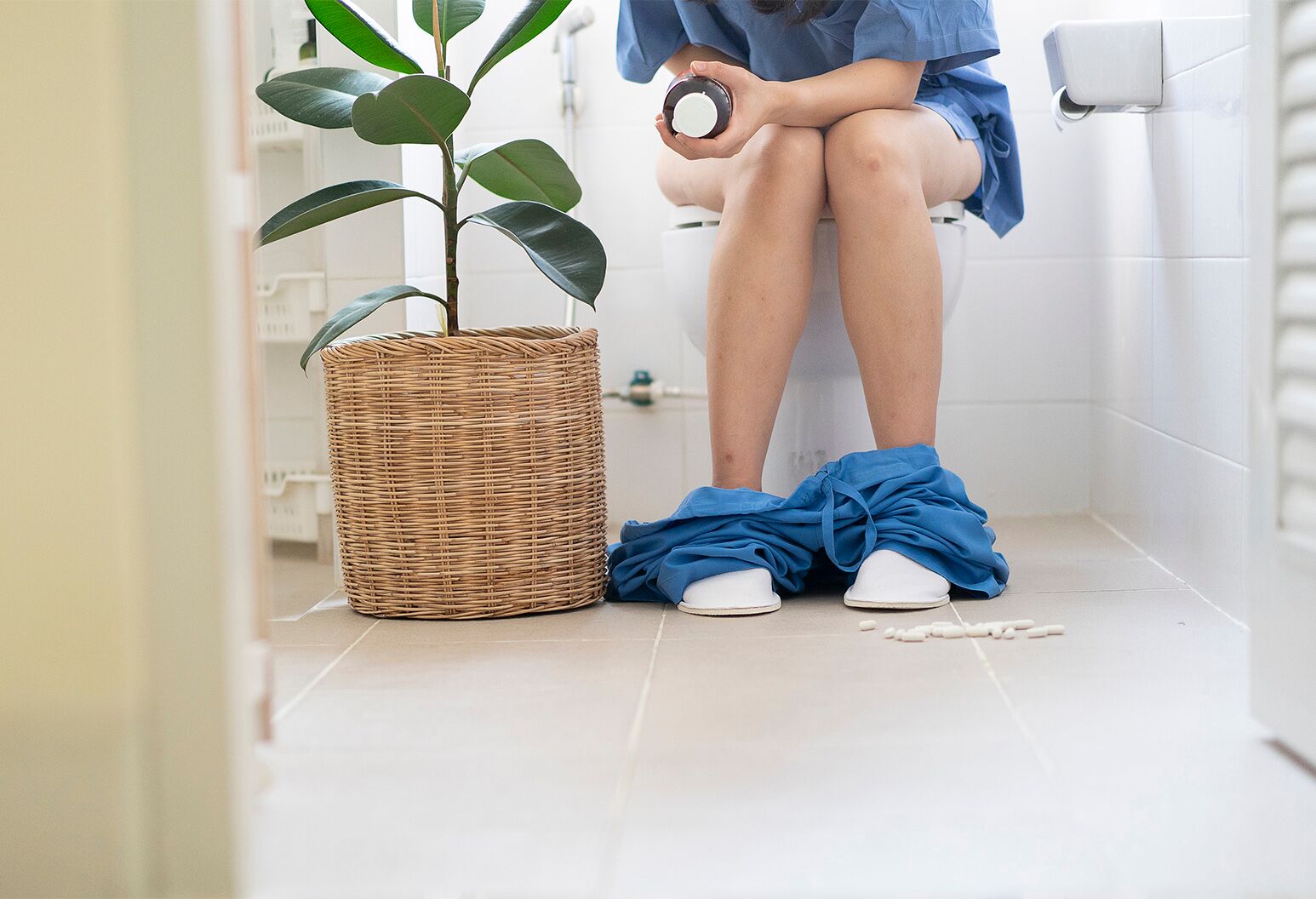digestive health
The No-Nonsense Guide To Norovirus

Routine is key when it comes to bowel movements. Here’s what else you need to know.
4 min read
I have a rather embarrassing confession to make. Although I’m normally pretty regular, for a little over a week I have just not been able to pass a single bowel movement. As a result, things are starting to get pretty uncomfortable down there, and I’m wondering: Are there any home remedies I can do to help me relieve my constipation?
Sincerely,
“All Backed Up”
First of all, don’t panic. Occasional constipation is completely normal, and there are any number of things that can cause it. I’d start by asking yourself a few questions: Have you been drinking enough water? Have you changed your diet recently? Or have you not been as active lately as you typically are? Have you recently traveled and had a long flight, or are you taking some new medication? If the answer to any of these is yes, you may have found your culprit.
The good news? There are plenty of remedies you can try.
But before we get to relief, I’d like to talk about what’s “normal.” Patients come into my office every day asking how frequently they should be having bowel movements, and the truth is, there is no magic answer. The frequency of your stools and what is considered “regular” is based on what your typical bowel habits are. Some of my patients move their stools two to three times a day, while others go just once a day. Others still only poop every other day—or even less. When it becomes a concern is if you have a consistent schedule and then you suddenly find yourself going far less.
By definition, constipation is not having a bowel movement for more than three to four days—or, I should say, having bowel movements less than three times a week. You may also notice an uncomfortable sensation that’s associated with difficulty passing stools, meaning that you have to push hard and strain in order to get something out. And you may be bloated.
By providing your email address, you agree to receive email communication from The Well.
The first step to relieve constipation is to up your water intake. Many people don’t drink enough water. This is key because if your body doesn’t have enough water, it pulls water from your stools, thus making them even harder to pass. I recommend carrying a bottle with you and also having one sit on your desk while you work. Next, try adding more natural fiber into your diet—so eating more fruits and vegetables can help. And then make sure that you’re exercising, as this can get things moving.
If you try the above and nothing works, try a fiber supplement like Metamucil, Citrucel, or FiberCon. But a word of warning: When you increase your fiber intake, you’ll need to increase your water intake, too. If you don’t, you’ll create a situation where the fiber will cement and make you even more backed up.
I always tell people to go slow. Read the serving size of a fiber supplement, start with half the amount, and work up from there gradually to the full dose.
I am not a fan of laxatives because they can make you more uncomfortable, cause cramping, and take longer to work than you might think. The same goes for enemas. I don’t like people sticking anything in the rectum. Why? One, it can cause trauma. And two, you’re essentially training the rectum to have a bowel movement only with an enema. Stool softeners are a good option. However, they will only soften an existing stool—they won’t fix the root of the problem.
If you’ve tried all of the above and nothing works, please call your doctor. While the main causes of constipation are what I listed above, there are other medical conditions that could be the culprit, like diabetes, stress, or a thyroid issue.
The Well is Northwell Health’s commitment to the future of health care. In this time of information overabundance, much of which is inaccurate, unhelpful, or even difficult to understand, Northwell Health is on a mission to make a difference as an honest, trusted, and caring partner. The site connects with consumers to provide them with personalized content that reduces their stress, makes them laugh, and ultimately feel more confident and capable on their healthcare journey.